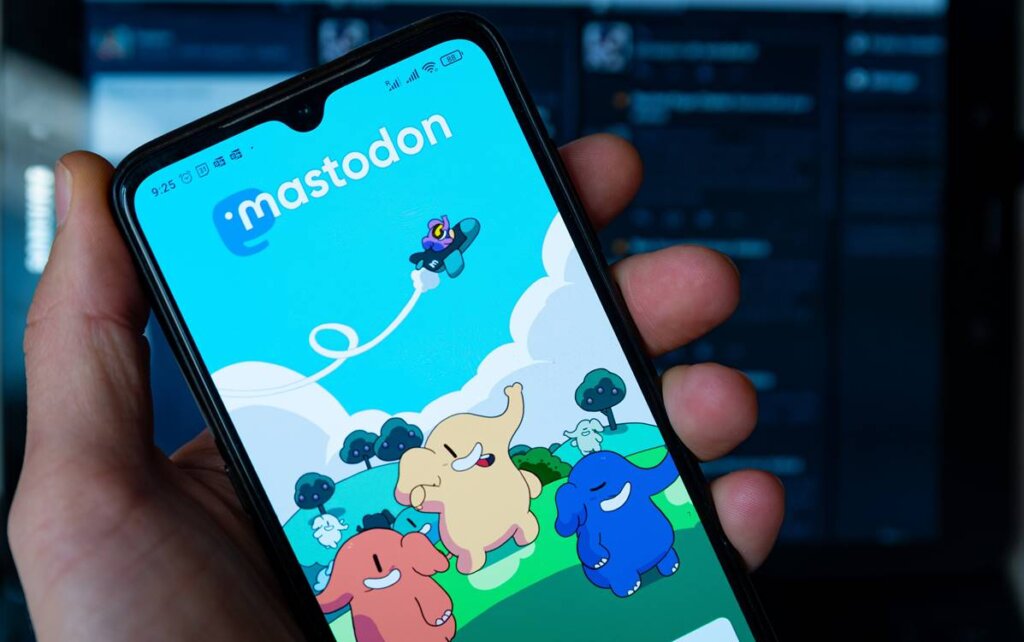Mastodon: The Alternative to Twitter?


Written and verified by the psychologist Valeria Sabater
There can be no denying that we’re going through some strange and uncertain times. As the French Post-Impressionist painter, Paul Cezanne said, “We live in a rainbow of chaos”. It makes the present moment rather favorable for the analysis of the behavior of society from any point of view: economic, psychological, social, philosophical, etc.
Today, social media is a good barometer for measuring much of the upheaval, intrigue, and many changes that are happening today. One good example is the fact that, a few months ago, the tycoon, Elon Musk, took control of Twitter and shortly afterward announced the dismissal of half of the company’s staff. More recently, there was even more disturbing news.
In fact, many of Twitter’s employees at the corporate headquarters in San Francisco have resigned. After being given an ultimatum by Musk to increase their productivity and work more hours, almost a third of the workforce left. This lack of engineers puts the stability of the platform at risk, and it’s been suggested that announced it could be the end of this social media platform.
Elon Musk claims he isn’t ‘overworried’ and insists that registered users of Twitter are growing more than ever. However, there’s another platform that’s becoming increasingly fashionable. It’s Mastodon, a possible alternative to the bluebird network.
If Twitter were to disappear, we’d lose a huge legacy of our digital history.

Mastodon
On October 27, 2022, Twitter became (for many) Elon Musk’s broken toy. Since then, more than a million people have joined Mastodon. The number continues to increase on a daily basis. In fact, it’s increasingly common to see users and public figures on Twitter announcing their new usernames on the new platform.
There are many other platforms within our reach. For example, Telegram, Reddit, Tumblr, Discord, and CounterSocial. So why is Mastodon the preferred alternative to Twitter? It appears that there’s a motivational element. It’s because most people are looking for a less toxic microblogging platform.
The University of Tübingen (Germany) conducted a study that analyzed the stress that social media generates in our lives. The study states that, on the one hand, social media is the best way of learning and staying informed. Therefore, we need it. On the other hand, these platforms stress us out, exhaust us, and are often a breeding ground dominated by trolls, fake news, and cyberbullying situations. Maybe we should be looking for healthier alternatives.
On Mastodon, toxic, offensive or Nazi-related content is prohibited.
Mastodon, the platform created to restore trust in social media
Eugen Rochko is the young developer of Mastodon. This platform emerged in 2016 in an attempt to create a network that wasn’t dependent on a single corporation. As Rochko explained to Time magazine, Mastodon is a world away from the top-down control that applies to Twitter.
This app describes itself as an “open, free, and federated network that operates similar to email.” However, what does that definition mean? Here are the most interesting aspects of Mastodon.
- It’s part of the federated digital universe. In other words, a set of platforms or free social media which can communicate with each other using different protocols.
- It’s decentralized. In fact, it seeks to create a more democratic network than the best-known networks which tend to be more corporate. The administration of the communities is autonomous and is carried out collectively.
- It doesn’t make deliberate use of its users’ data to sell them advertising.
- The registration process is complex. The user must choose in which ‘community’ they want to participate. They choose them according to their interests and language.
- There are hundreds of servers on Mastodon, called instances. Each of them has different rules and regulations regarding who can join and what content is allowed. If at any time you don’t like the dynamics you see in them, you can switch to another instance.
- Aggressive and Nazi-linked content is prohibited.
- Like Twitter, there are hashtags, replies, bookmarks, and retweets. However, tweets are called toots, they allow up to 500 characters, and the messages are tailored to our interests.
Mastodon is a social media platform made up of several networks. But registering isn’t easy. Economist, Paul Krugman explained on Twitter that he tried, but gave up after three hours.
The negative aspects of Mastodon
The main negative aspect of Mastodon is the complexity at the time of registering. It isn’t easy to decide which server to join. Some of them even have waiting lists.
In addition, this platform doesn’t have an entire team of engineers like Twitter, and the accounts aren’t verified. In fact, for the moment, it’s nothing more than a fledgling platform that must mature and improve.

Our communicative needs make us look for alternatives
In the midst of the present Twitter crisis, an interesting phenomenon has emerged. It’s the fact that many people are signing up for Mastodon due to the need for alternatives with which to continue connecting with others. Indeed, it seems we can no longer conceive of a world without a digital universe to keep us informed.
We want to have a medium with which to express ourselves, whether we do it with 140 or 280 characters. Our brains have become accustomed to knowing what’s happening in the world and what opinions are trending. We long to interact, share, and give and receive likes. For this reason, we seek means and channels to perpetuate these practices. There’s no doubt that times are changing but our needs are still the same.
All cited sources were thoroughly reviewed by our team to ensure their quality, reliability, currency, and validity. The bibliography of this article was considered reliable and of academic or scientific accuracy.
- Bonnington, Christina (22 de noviembre de 2016). «Mastodon is an open source, decentralized version of Twitter»
- Morse, Jack. «In the rapidly expanding Mastodon fediverse, there’s an instance for everyone» Mashable.
- Wolfers LN, Utz S. Social media use, stress, and coping. Curr Opin Psychol. 2022 Jun;45:101305. doi: 10.1016/j.copsyc.2022.101305. Epub 2022 Jan 31. PMID: 35184027.
This text is provided for informational purposes only and does not replace consultation with a professional. If in doubt, consult your specialist.








